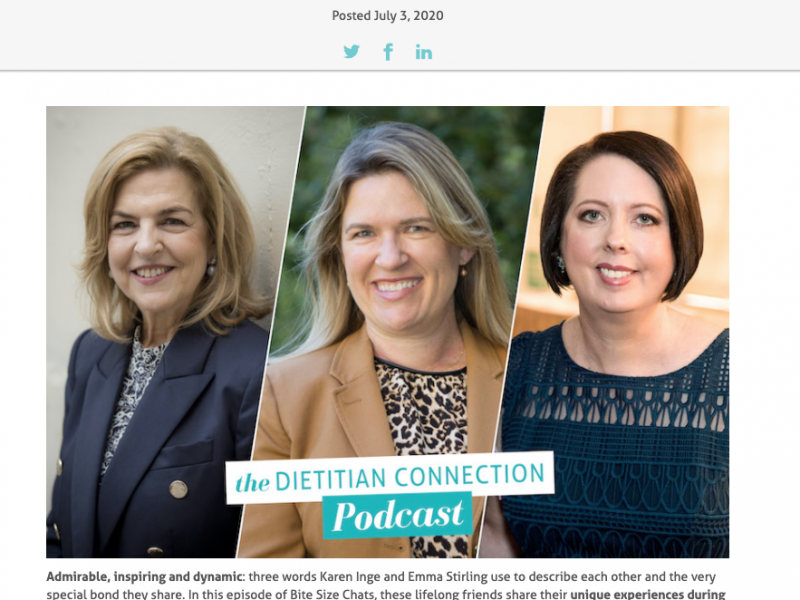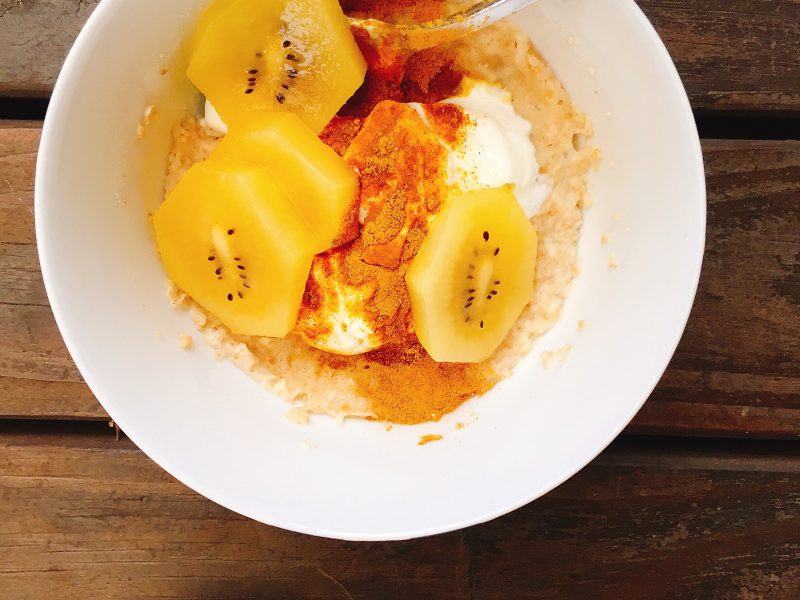Have you heard about the paleo or caveman diet? Then you must read our scoop:
About our expert:
Ashleigh Jones is the October Scoop Sub of the Month. An Accredited Practising Dietitian based on the Gold Coast, Australia she is balancing a busy first year of her career in a range of fields. You can read her full bio here and connect with her on Twitter @AshJonesAPD
One of the best things about my job is that I get to sit down with dozens of people each day and chat about what they’re eating and why they’re eating it. This may sound dull to some, but I find diet trends particularly interesting, and I always wonder why certain diets become popular at certain times. Right now I’m hearing a lot about the Paleo Diet, both from clients and acquaintances, and unlike the Atkins Diet or the Dukan Diet this one does not yet seem to have really taken off as yet in Australia. This week I’m going to roadtest the Paleo Diet in the name of science, but first let’s find out what it’s all about.
Paleo-what?
“Paleo” is short for “paleolithic” and refers to the era of human evolution commonly referred to as the Stone Age. This era began around 2.6 million years ago and was defined by the development of primitive stone tools. During this time the hunter-gatherer lifestyle was all the rage, and these tools allowed prehistoric man to spice things up a bit and move on from their scavenger roots. Wild meat, fish, insects, eggs, fruit, berries, vegetables and nuts were all on the menu, but grains and dairy were not added until the emergence of agriculture around 10,000 years ago.
Kicking it old school
In the spirit of learning from our mistakes, one could be forgiven for questioning the wisdom of replicating the diet of an extinct civilization. And while it is true that our Paleolithic brethren did not have the most robust life expectancies, proponents of the Paleo Diet argue that the modern, western diet is doing us even more of a disservice. The only difference is that we now have improved hygiene, sophisticated medical technology and are no longer the prey of Pleistocene megafauna (a fact I’m eternally grateful for).
How Paleo can you go?
Perhaps one of the main reasons the Paleo Diet has not yet achieved mainstream popularity is that there is no single book or guide considered to be the authority on the subject. For this reason, there is a great deal of debate over what actually constitutes a true Paleolithic diet. Some Paleo enthusiasts strive to mimic ancestral man as closely as possible and emphasize high fat meats (woolly mammoth burger, anyone?) and a strict elimination of all processed foods. Others are more moderate in their approach, particularly Loren Cordain, Ph.D. who has written some of the most popular and well-received books on the topic. According to Cordain there are six basic rules:
- All the lean meats, fish and seafood you can eat
- All the fruits and nonstarchy vegetables you can eat
- No cereals
- No legumes
- No dairy products
- No processed foods
Seems to be pretty straightforward, really.
So where’s the beef?
Aside to my personal aversion of the “all you can eat” recommendation, I have a pretty major bone to pick with any diet that excludes food groups in their entirety. Let alone the fact that the food groups in question are cereals, legumes and dairy products! Cordain is a proponent of the leaky gut hypothesis, a theory that associates wheat, various other grains and dairy with increased intestinal permeability, which is then thought to cause autoimmune diseases and general ill health. This hypothesis is not widely accepted in mainstream medicine and is not supported by a great deal of evidence. However there is certainly something to be said about the benefits of reducing the intake of wheat and other grains in certain food sensitive people.
 Intestinal permeability aside, this does not change the fact that the Paleo Diet contains less calcium than that of 21st century man. Cordain states that in the absence of phytates (mostly eliminated due to the exclusion of grains and legumes) calcium becomes more bioavailable from plant sources, and our GI tracts are able to absorb it more efficiently.
Intestinal permeability aside, this does not change the fact that the Paleo Diet contains less calcium than that of 21st century man. Cordain states that in the absence of phytates (mostly eliminated due to the exclusion of grains and legumes) calcium becomes more bioavailable from plant sources, and our GI tracts are able to absorb it more efficiently.
My other issues with this approach relate to the practicalities. This approach is wildly unsuitable for vegetarians, but even for seasoned omnivores, is it really sustainable for the average person to eat this way long term? The problem with such a strict approach is that it neglects the emotional aspects of eating. Food is not merely a nutrient delivery vehicle, it’s also a source of pleasure and socialisation, and I feel that this is something nutrition scientists can be all too quick to forget in the quest for optimal health.
On the bright side
While I have my criticisms, Cordain’s Paleo Diet is certainly not without its advantages. This dietary approach promotes an increased intake of fresh fruits and vegetables, something our society is clearly lacking. Further, he promotes lean, nutrient-dense protein and fat sources such red meat, poultry, fish, eggs and nuts. This diet is rich in water and fat soluble vitamins, iron, zinc and essential fatty acids, and the reduced phytate intake enhances micronutrient bioavailability. The emphasis on whole foods is great and something we should all strive to achieve. In that regard, the Paleo Diet is fantastic, and encouraging people to move away from a high fat, high salt, fast food-based diet is only a good thing. While it’s not always convenient, it’s putting people back in the kitchen and the supermarket and making them stop and think about the foods they are eating. In that sense, we could all benefit from going a little bit paleo.
Further reading:
- Cordain’s site
- Some of Cordain’s research
- Extreme paleo site: Paleo Diet Lifestyle
- Ray Audette, author of Neanderthin
- Paleo in the news
- An interesting blog by a Paleo-loving scientist: That Paleo Guy
- Evidence for paleo is not clear
- Long term safety and efficacy not known
Editor’s comment: Project Paleo
Thanks so much Ash it’s been fantastic having you on board this month. Ash has started road testing the Paleo Diet this week and I know she’s missing coffee too. We would love to hear your thoughts in our comments below. Does this diet have its merits or is it just another fad? Have you ever tried it or something similar? Are you a convert or a critic? Ash will be tweeting her progress, so follow her on twitter @AshJonesAPD.




